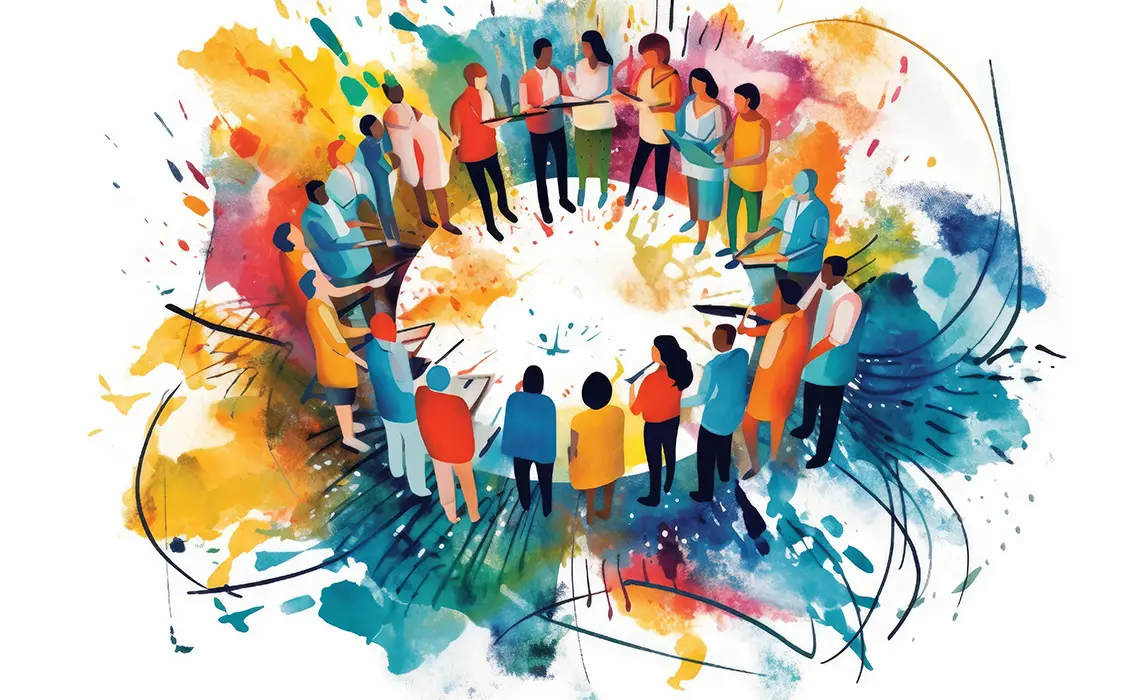Translation Studies

In the ZHAW Professorship of Translation Studies, we investigate forms of successful multilingual communication in our digitised world. We explore the interplay of linguistic creativity, intercultural skills, emotional intelligence and language technology that is aimed at sharing information effectively across languages and cultures. In doing so, we identify strategies that allow multilingual communicators to design their texts appropriately for their target audience. We also develop and evaluate processes and resources that facilitate multilingual communication in multilingual companies and organisations. Such research provides valuable insights into the interaction between interpersonal aspects, cognitive processes and language technology in the field of communication. It also allows us to develop innovative solutions to meet the growing demand for language services and multilingual communication processes in areas such as marketing, public administration, education, the media and healthcare. Our interdisciplinary and transdisciplinary research contributes to ensuring successful communication in our diverse society and globalised economy as well as supporting professional communicators over the long term.
In focus
Multilingual and intercultural communication design

We research and teach the theory and practice of professional translation as well as the post-editing of machine-translated texts, transcreation, localisation and multilingual text production. In doing so, we investigate how complex content is designed, written and structured across various languages and cultures so as to ensure that it can be seamlessly integrated, understood by its recipients and used for its purposes. We also analyse the work processes and conditions of professional multilingual communicators, how they go about their work and what they need to be able to complete their assignments in a competent, efficient, self-determined and motivated fashion.
Strategic management and multilingualism

In a global economy and a multilingual country like Switzerland, companies and institutions are often multilingual. Well though-out communication processes are fundamental to the success of these multilingual organisations and contribute to both their national and international reach. We develop and evaluate processes for the management of multilingual communication in organisations and conduct research into how linguistic and cultural knowledge as well as the use of language technology can be integrated into business processes, corporate strategies and decision-making processes and utilised to achieve organisational goals.
Technology in multilingual communication

Language technology, and artificial intelligence (AI) in particular, is changing multilingual communication. While it is creating new opportunities for people to communicate between different languages and cultures, it also poses risks in terms of understanding, the building of trust and credibility and the development of language and communication. With a particular focus on machine translation, we analyse how language technology can be used in various contexts in a well-considered, sustainable and targeted manner, advise organisations on this and promote the development of AI literacy, i.e. the skilful and responsible use of AI in various target groups within society.
Projects:
- Digital Literacy in University Contexts (DigLit)
- Translation Apps for Nursing Staff (in German)
- Use of machine translation in healthcare
Change management and future skills in the language industry

We analyse the digital transformation and job profiles in the language industry. We support organisations in their change management processes and research how work processes can be shaped, structures adapted and stakeholders trained with a view to increasing their awareness so that everyone is able to take advantage of the opportunities presented by progress and innovation and help to shape them in a proactive manner. For training and continuing education, we define the skills that language professionals need now and will require in the future in order to design multilingual communication in a precise, emotionally intelligent and ethical way, use language technology in a creative, well-considered and responsible manner and assume leadership roles.
Projects
Unfortunately, no list of projects can be displayed here at the moment. Until the list is available again, the project search on the ZHAW homepage can be used.
Research-based teaching
We integrate current research findings and professional know-how from consulting into our teaching at the Bachelor’s and Master’s level as well as into our continuing education programmes. In the BA in Multilingual Communication, our students learn how to design multilingual intercultural communication processes and proficiently use technologies for the management of multilingualism. With the MA in Language and Communication, our graduates acquire expertise in the fields of transcreation, professional translation, quality assurance, management and consulting as well as skills that enable them to apply scientific methods to investigate language and multilingual communication. Both degree programmes provide students with the opportunity to interact with experts from the world of practice, participate in research projects and track current developments in the professional world by performing their own scientific work.
Our continuing education programmes are designed to promote targeted professional development for those already in the job market. In addition, our business services provide the language industry and multilingual organisations with research-based support for working with artificial intelligence and developing innovative solutions for a successful digital transformation.
Team

Prof. Dr. Maureen Ehrensberger-Dow
Former Head of Translation Studies (until July 2022)

